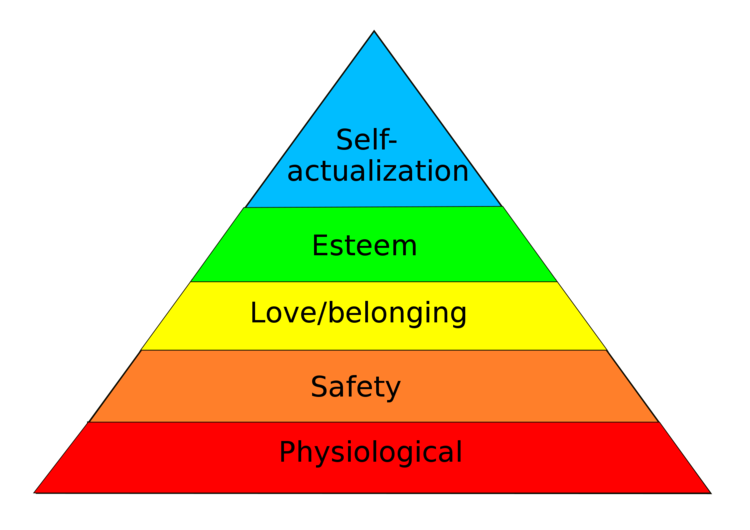Some parts of the country and world may be starting to open back up again, but it’s a stressful time. How are you holding up?
Most people I know are finding themselves in one of too extremes: they are lonely and bored, cooped up with no one but themselves, OR they are so starved for alone-time and their workloads so full they feel like they might explode.
When we find ourselves at either of these extremes, when we’ve read a million articles about how to focus at home, how to look good on Zoom, how maximize our time in quarantine, how to not feel bad about handing over our kids to the screens, it can start to feel a bit overwhelming.
We’re still in a crisis. And it’s stressful. And whether you are one of those people who relieves stress through cooking (sometimes elaborately in a way that may seem frivolous to others; can you tell I’m talking about myself?) or whether you are someone who relieves stress by leaning into doing nothing, I think we all might want to spend a little time thinking about how we can reduce stress by going back to basics.
Let’s go back to high school for a moment. You remember our friend Abraham Maslow, right? (If not, no worries! Just look below.) On the very bottom of Maslow’s hierarchy of needs are our physiological needs. If these are not being met, we can not progress up the pyramid:

So, now is the time to be reassessing how we can meet our base level physiological needs.
Sleep
Sleep is essential to our health, to our ability to focus and to our well-being.
Adults need 7-9 hours a night of sleep. How much sleep are you getting?
In the US, 35% of adults are getting less than the recommended amount of sleep for health. Many people mistakenly assume that they can survive on little sleep because they’ve been doing it for so long. And they are surviving, but that doesn’t mean they are not negatively impacted by the lack of sleep.
When we’re not getting the sleep we need:
- we’re more distractible and less focused
- we’re more moody and quick-tempered
- our memory suffers
- our immune system is impaired and we are at a greater risk of all sorts of health problems
If you don’t know how much sleep you are getting, track it! You don’t have to have a fancy app, no problem! Just note the time you go to sleep and the time you wake up.
Simple ways to get more sleep?:
- Turn off the screens at least an hour before bedtime (and turn off the notifications so they don’t wake you up!)
- Set a “bedtime alarm” (work backwards from when you need to get up)
- Take naps if you can.
- Turn your former “commute time” into “extra sleep time”
Exercise
Moving our bodies improves our mental health (even if we are those unlucky souls, like me, who have never experienced the elusive “runner’s high”). Exercise reduces anxiety, depression, and negative moods and increases our cognitive function. But exercise also increases our productivity, which helps us with motivation and fatigue. When we exercise, we have more energy to get done what we need to get done, and we can do it more easily because of the improved cognitive function.
Our bodies were built to move. But now, when we are stuck inside all day, getting the movement we need is a struggle, even for the most regular of exercisers.
How to get more exercise, even if you can’t leave the house:
- Commit to shorter, more frequent bursts of exercise. (5 minutes running up and down your stairs, a 15 minute walk around the block (with a mask on, of course), 10 minutes of yoga after lunch, etc.)
- Make rules for yourself (“I always take the stairs”, “I never miss more than 1 day”, “I park at the back of the lot”, “If it’s less than a mile, I walk”, etc.)
- Use what you’ve got! There are so many workouts you can do for FREE, that require no equipment at all, and that don’t require a gym membership. The NY Times 7 Minute Workout, Nike Training Club App, so many free videos on YouTube.
- (Last week we told our 11 year old he needed to go work off some of his energy. He decided to hit 2 birds with one stone by doing lunges down the hallways as he was putting his laundry away!)
Nutrition
I bet you’ve never cooked so much in your life as these weeks of shelter-in-place. Before this, I cooked dinner from scratch almost every night, but even I’m cooking more now. (This past Saturday I ran the dishwasher twice…before lunch!)
How we feed our bodies and brains can have a huge effect on our productivity and well-being. In fact, adequate nutrition can boost productivity by up to 20%! When we have low blood sugar, we also have less self-control, and self-control is essential to productivity. It’s the difference between doing the hard thing you don’t really want to do, and mindlessly checking email because it feels good.
You know you should be eating right, but it can seem hard and time-consuming. (And I get that.) But doesn’t have to be.
Here are some tips to eat well with minimal time:
- Meal plan: spend 20 minutes on the weekend planning out your meals for the week so that you don’t have to make decisions in the moment.
- Batch process healthy snacks: cut up a whole bunch of carrot sticks and keep them in the fridge, at the ready.
- Put healthy snacks in convenient locations, and put the unhealthy stuff on the top shelf all the way at the back. Keep nuts, fruit, etc. on your desk for easy access.
- Double the recipe and freeze half. Same amount of work, 2 healthy meals.
- Just don’t buy the stuff that’s no good for you; keep it, and the temptation it brings, out of the house. It is easier to remove temptation, than to resist it.
Are you taking care of yourself? If not, start here, with the basics.
And when you are feeling unfocused and like you can’t go on, ask yourself 3 questions:
- Am I tired?
- Do I need to move?
- Do I need to eat?


